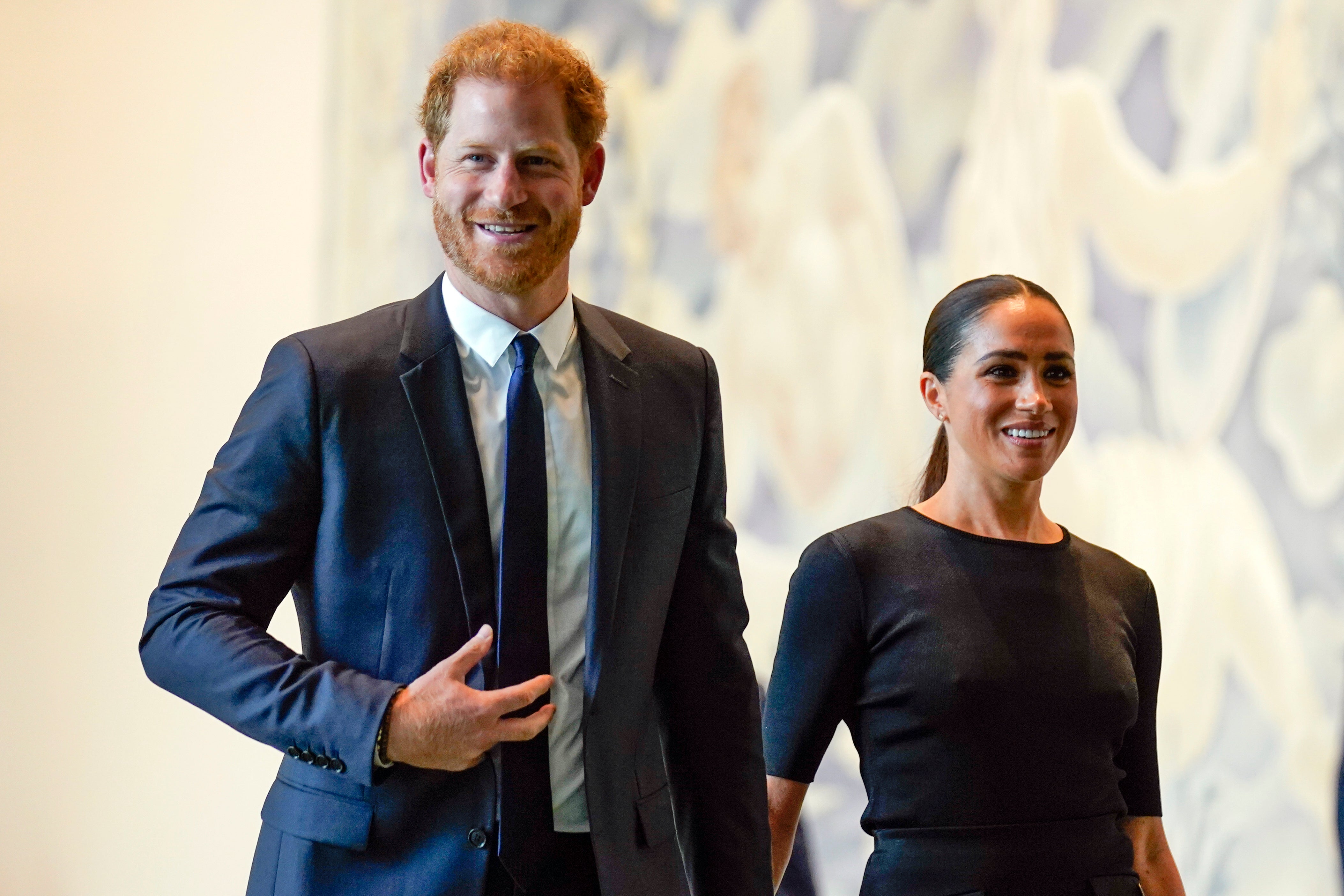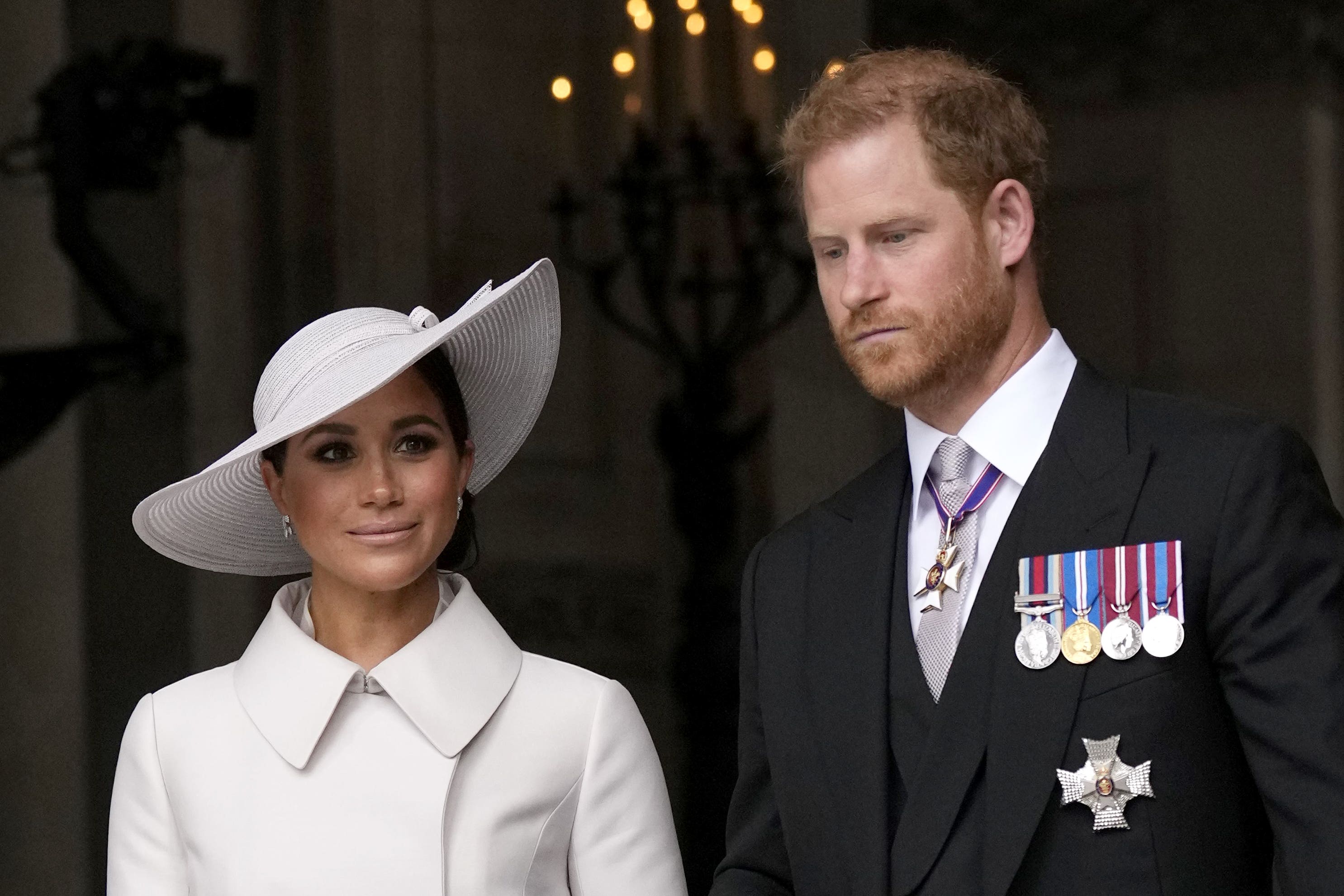Prince Harry loses legal bid to ‘buy’ police protection in UK
Committee considered it was ‘not appropriate’ for wealthy people to ‘buy’ protective security including armed police
Your support helps us to tell the story
From reproductive rights to climate change to Big Tech, The Independent is on the ground when the story is developing. Whether it's investigating the financials of Elon Musk's pro-Trump PAC or producing our latest documentary, 'The A Word', which shines a light on the American women fighting for reproductive rights, we know how important it is to parse out the facts from the messaging.
At such a critical moment in US history, we need reporters on the ground. Your donation allows us to keep sending journalists to speak to both sides of the story.
The Independent is trusted by Americans across the entire political spectrum. And unlike many other quality news outlets, we choose not to lock Americans out of our reporting and analysis with paywalls. We believe quality journalism should be available to everyone, paid for by those who can afford it.
Your support makes all the difference.The Duke of Sussex has lost his High Court bid to “buy” police protection for his family during trips to the UK.
Prince Harry, 38, had wanted to personally pay for security after being stripped of taxpayer-funded protection when he and his wife, the Duchess of Sussex, stepped down as senior royals and moved to the US in 2020.
But Home Office lawyers argued it was “not appropriate” for wealthy people to “buy” security from the police. There were also concerns that it would “reduce the availability” of a limited pool of close protection officers.
A judge has now refused Harry permission to bring a judicial review over the decision in what would have been a second challenge relating to his security arrangements.
The blow for Harry comes a week after he and his wife Meghan said they were involved in a “near catastrophic” car chase in New York after being followed by “highly aggressive paparazzi” in a “relentless pursuit”.
The legal action was among five other civil cases Harry is pursuing through the courts, including three outstanding claims relating to alleged phone hacking.
He has already been granted permission to fight the decision not to be given the “same degree” of personal protective security when visiting the UK, although a date for the hearing has not been set.
According to Freedom of Information figures obtained in February, the government has so far spent £296,882 on the security case, with the figure now likely to be higher.
In February 2020, an official committee – known as Ravec – decided the duke, his wife and children would no longer be automatically granted police protection on visits to the UK.
The High Court was told he did not know the committee existed, or that members of the royal household were involved, and believed its decisions were “independent”.
Legal documents filed by his representatives said that, at the time, there were “significant” tensions between Prince Harry and the Queen's private secretary, Sir Edward Young.

After launching an initial claim for judicial review over that decision, his representatives challenged further decisions relating to the Sussexes’ security arrangements.
The High Court heard that Prince Harry made the offer to “reimburse or proactively finance the cost of the security measures” to members of the royal household in January 2020, but in December 2021 the home secretary passed the decision on whether that was possible back to Ravec.
The committee decided the move would be wrong “in principle” in February 2022.
Lawyers for the Metropolitan Police said Ravec had been “reasonable” in its findings.
The Home Office told the High Court the committee considered it was “not appropriate” when it had decided that “the public interest does not warrant” someone receiving such protection on a publicly funded basis.

The judge dismissed the legal arguments from Harry’s team on all five grounds and refused permission to apply for judicial review of the 2021 and 2022 decisions.
Mr Justice Chamberlain ruled Harry’s offer to pay for police protection “potentially affected anyone who might seek to pay for protective security that had not otherwise been made available”.
His judgment said that Ravec had warned that permission to allow private funding “would constitute a precedent of uncertain scope”.
There were also concerns that permitting private funding would “reduce the availability” of a limited pool of close protection officers in the UK, where police are not routinely armed and undergo intensive specialist training for the role.
The ruling comes amid an ongoing High Court trial involving the duke, in which he is bringing a contested claim against Mirror Group Newspapers (MGN) over allegations of unlawful information gathering.
Harry is also waiting for rulings over whether similar cases against publishers Associated Newspapers Limited (ANL) and News Group Newspapers (NGN) can go ahead.
A judgment is also expected in the duke’s libel claim against ANL – publisher of the Daily Mail and Mail on Sunday – over its reporting of the row around his security arrangements.
Harry’s legal challenge over the original decision by Ravec will be heard at a later date.




Join our commenting forum
Join thought-provoking conversations, follow other Independent readers and see their replies
Comments